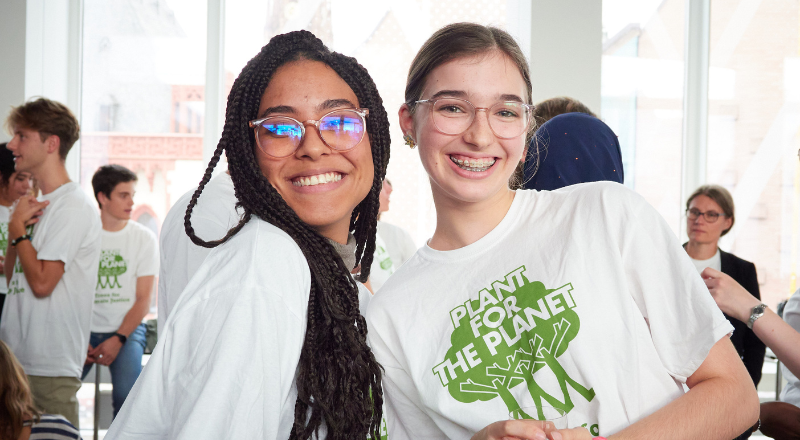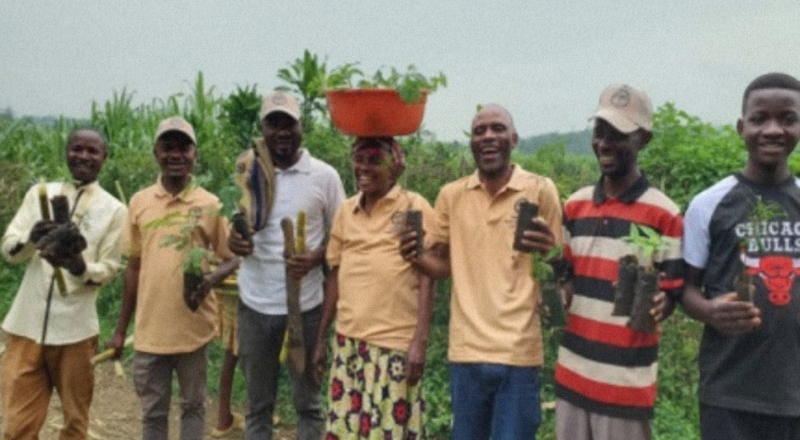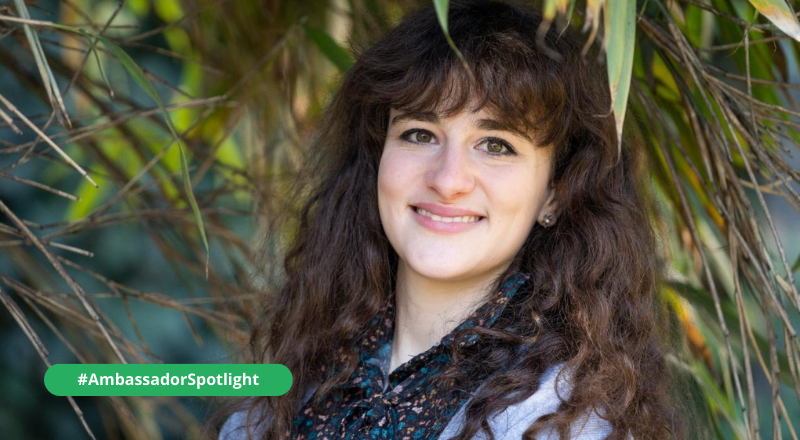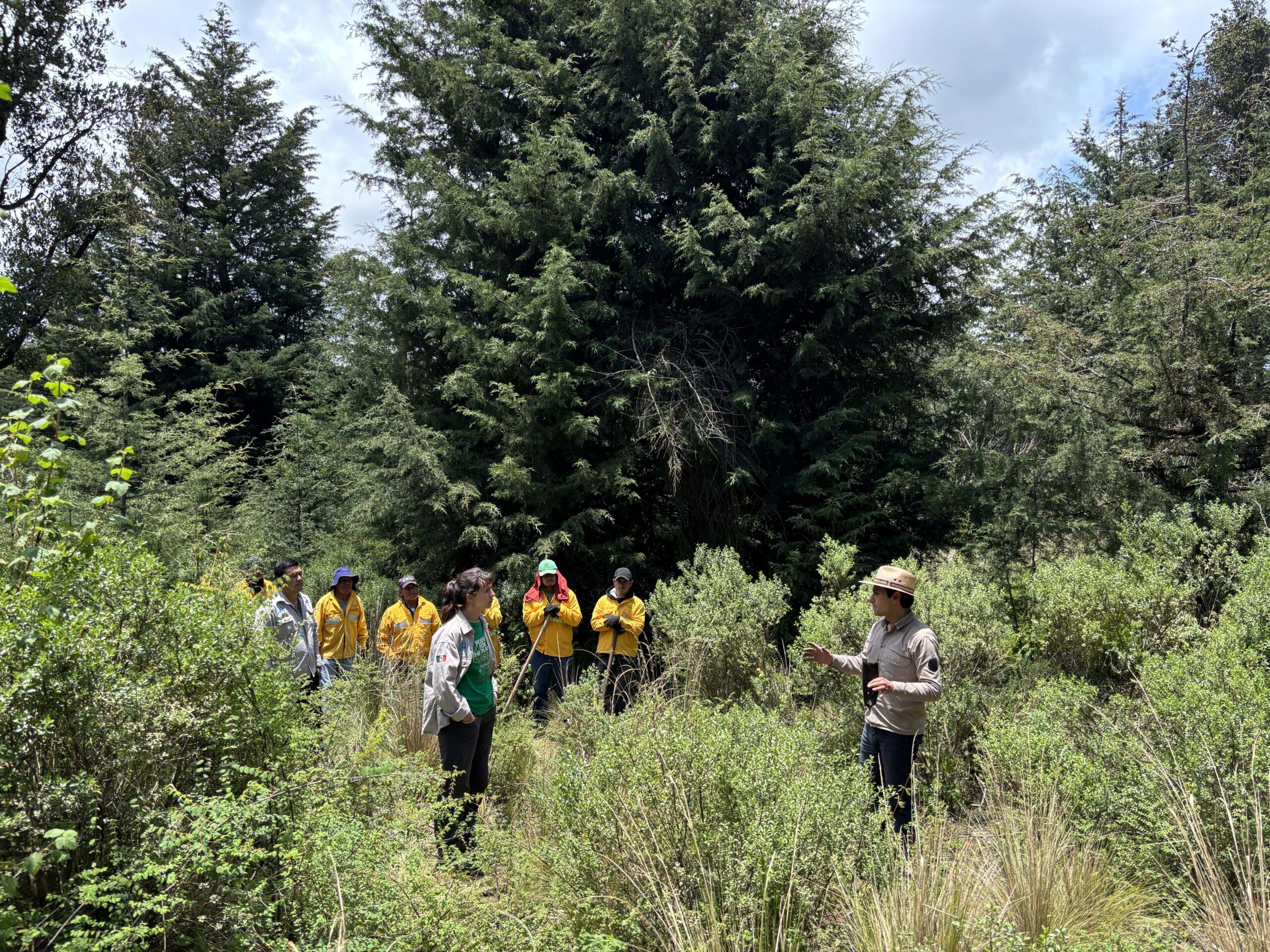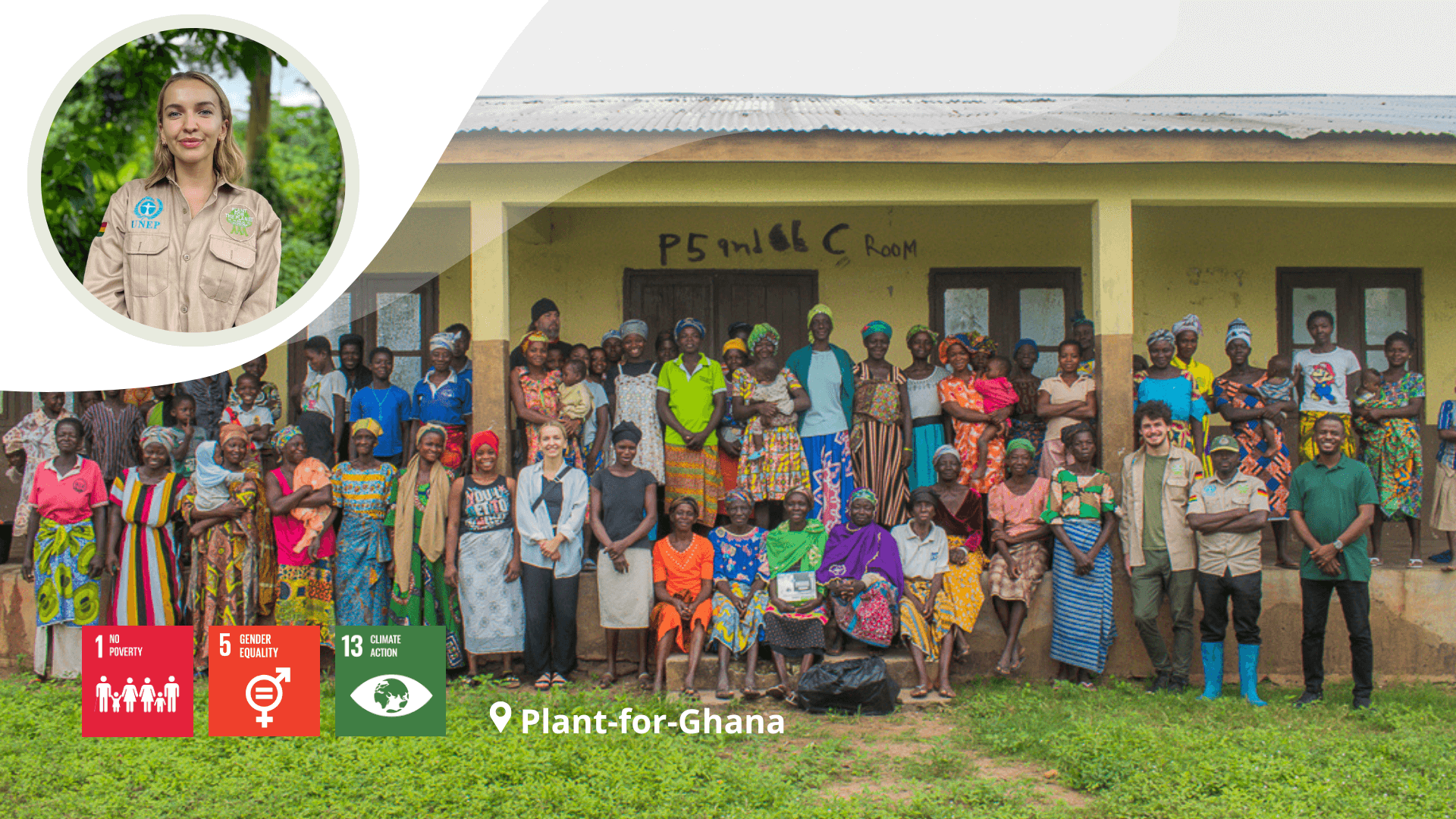
Dive into our insightful interview featuring Tamara Cibulkova, project manager at Plant-for-the-Planet Czech Republic – in this interview, we delve into Tamara’s involvement with Plant-for-Ghana, an inspiring forest restoration initiative aiming to restore Ghana’s ecosystems and empower its communities. Through Tamara’s firsthand experiences and passionate advocacy, we gain a deeper understanding of the project’s significance and potential for positive change.
“I’m a big believer in community-led initiatives, especially regarding restoring ecosystems. I believe that the climate crisis is a multiplicator of crises, and I think women can be the multiplicator of the solutions.” – Tamara Cibulkova, project manager at Plant-for-the-Planet Czech Republic
Tamara, how did your journey with Plant-for-the-Planet begin?
Back in 2020, I got involved with Plant-for-the-Planet Czech Republic Nadace. Moving from the corporate world to this global community focused on positively impacting society and the environment was a big change for me.
Could you tell us about your role within Plant-for-the-Planet and what you do there?
As a Project Manager, my role is dynamic. I’ve organized educational Academies, worked closely with our ambassadors, handled communications and social media, and was part of various projects, campaigns, and partnerships. It’s been a natural learning curve.
How does your work tie into your experiences in Ghana, and how did you get connected with Plant-for-Ghana?
I met Mohammed, the brain behind Plant-for-Ghana, at our international Plant-for-the-Planet meetups. We hit it off by discussing the project, and from there, we actively looked for ways to collaborate. When Mohammed visited us in Prague in 2021, it cemented our cooperation. Now, I’m heavily involved in the project’s communication, awareness-raising, and fundraising efforts.
For those not familiar, what exactly is Plant-for-Ghana, and why is it important to you?
Plant-for-Ghana is all about restoring forests and supporting the sustainable development of local communities. It’s a local initiative that is part of the global Plant-for-the-Planet organization. I’m passionate about it because it’s not just about planting trees; it’s about empowering people and restoring ecosystems in a way that sustainably benefits everyone.
I’m a big believer in community-led initiatives, especially regarding restoring ecosystems. The climate crisis is a multidimensional problem that requires intersectional solutions. The project addresses that through a well-coordinated approach: green job-creation, economic, and social empowerment combined with biodiverse restoration help solve the local issues and contribute to mitigation efforts globally. I see this approach as hopeful and highly promising for a sustainable future for all.
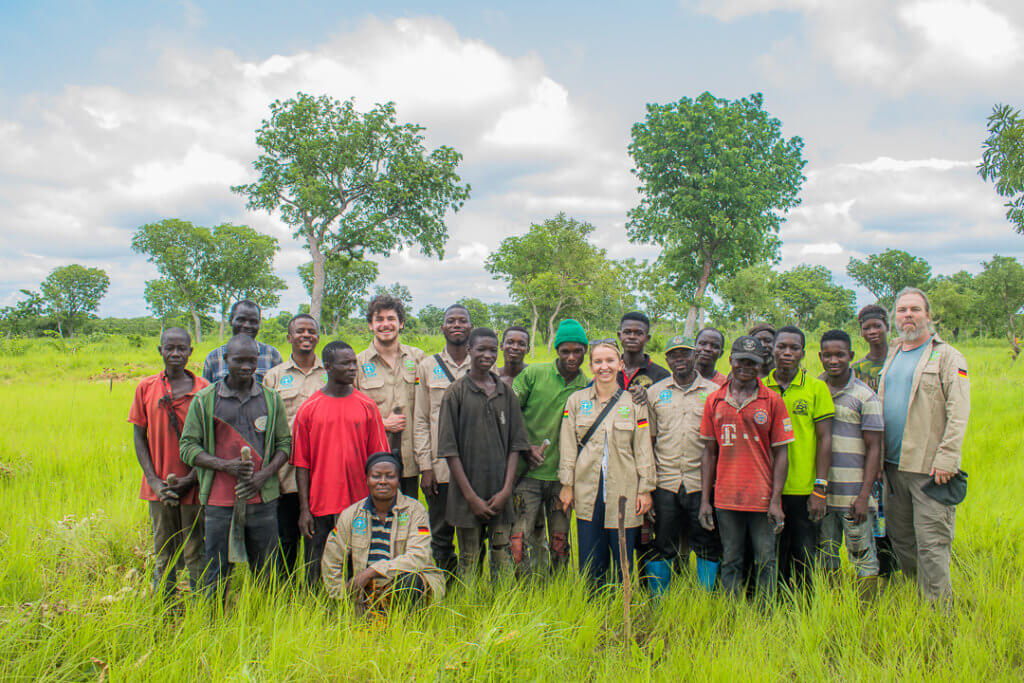
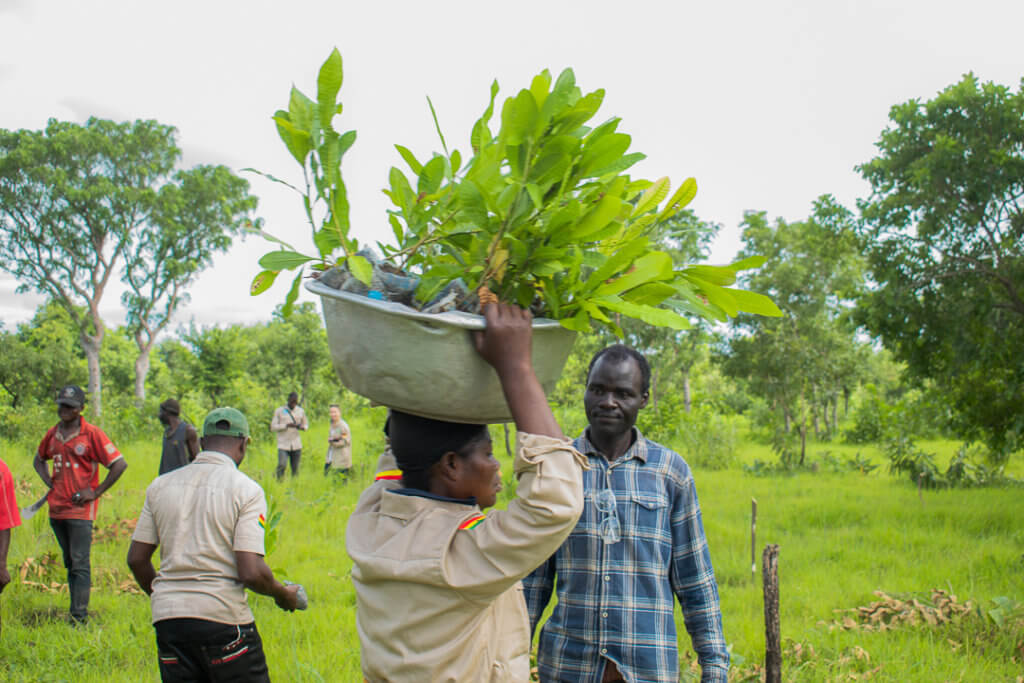
What aspects of the project do you find most exciting or interesting?
Within the communities, women empowerment plays a crucial role in creating a resilient society. A great example is Edith, who is currently the head of the nursery. She’s going to be in charge of training to ensure that the female nursery workers are well-trained and educated. Women then also have an opportunity to sell cashews and participate in bee-keeping and honey production, making them and the whole community more financially stable. Plant-for-Ghana offers an alternative to the hard labor, for example water fetching and walking long kilometers daily, and what’s more, gives women a chance to break the cycle of poverty by educating, empowering and involving them. I believe that the climate crisis is a multiplicator of crises, and I think women can be the multiplicator of the solutions.
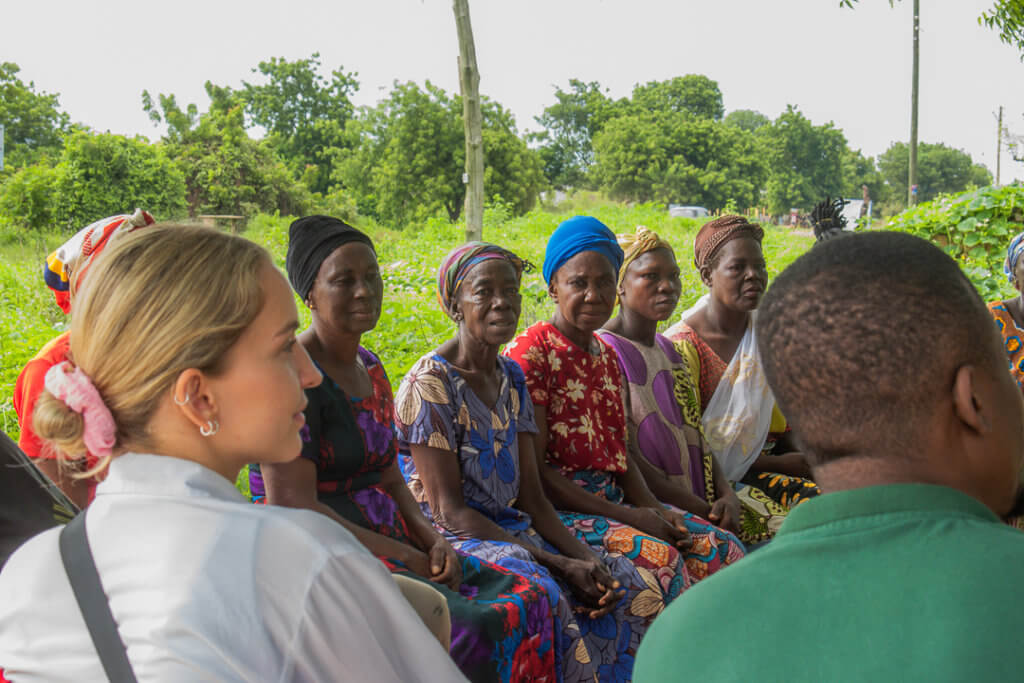
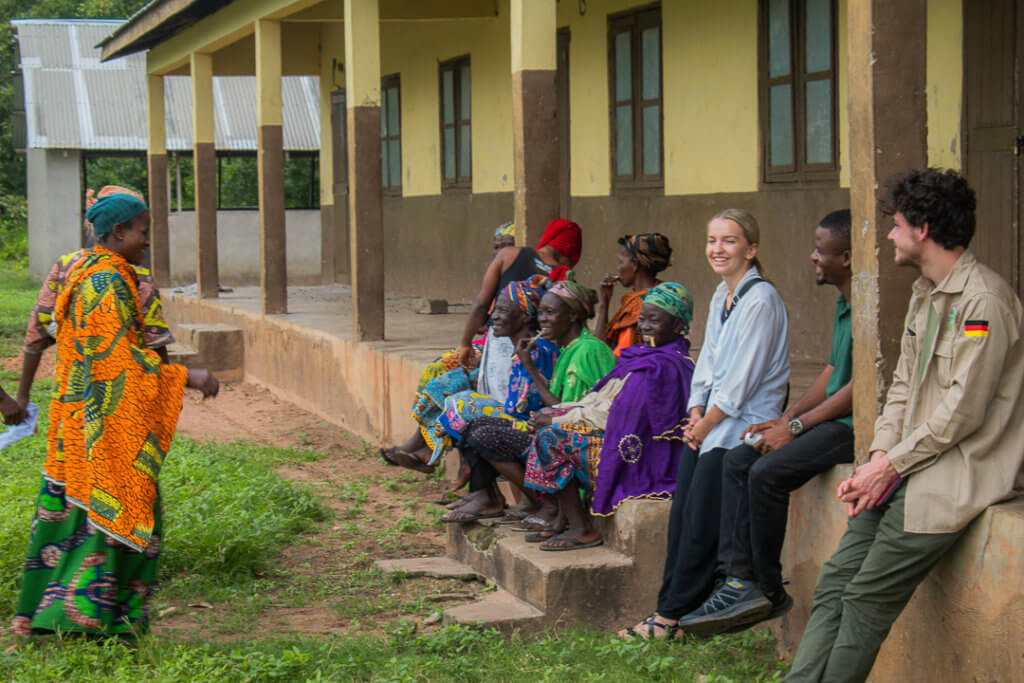
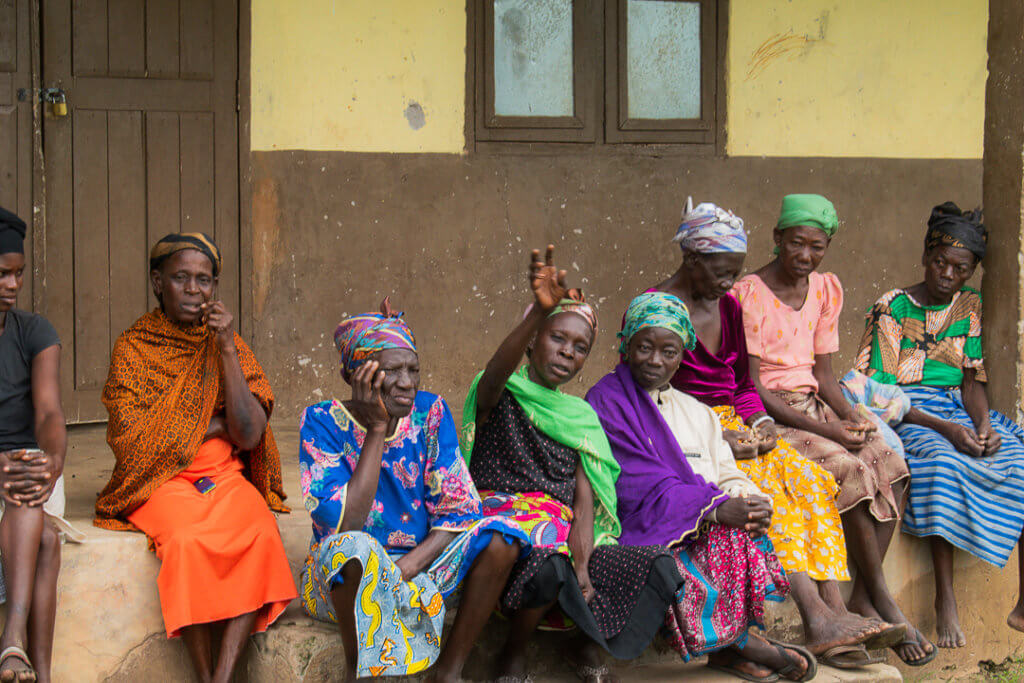
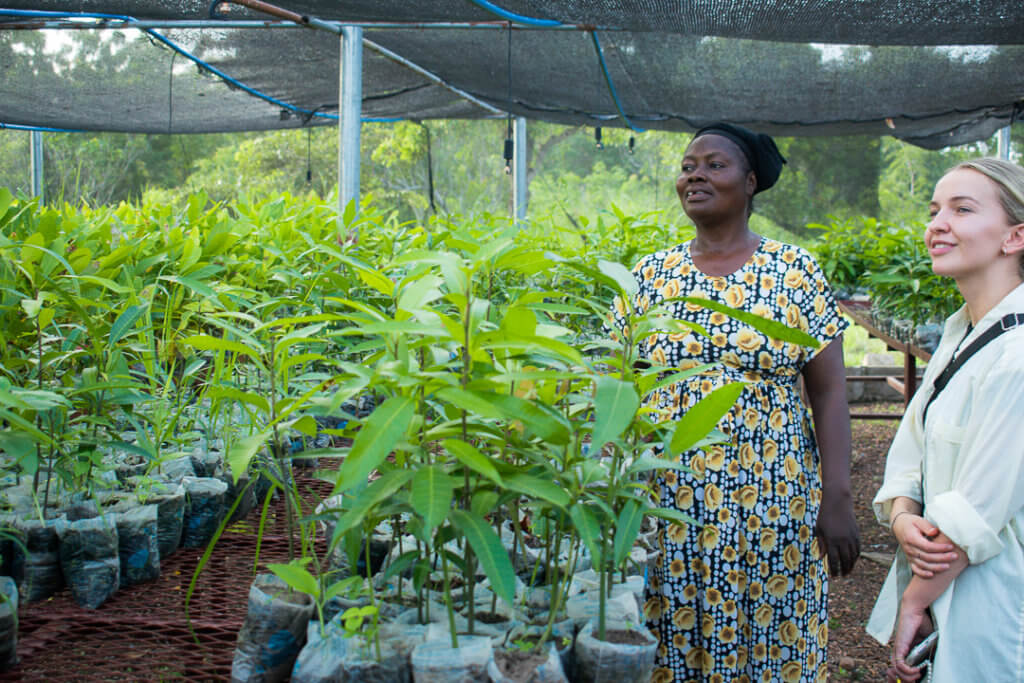
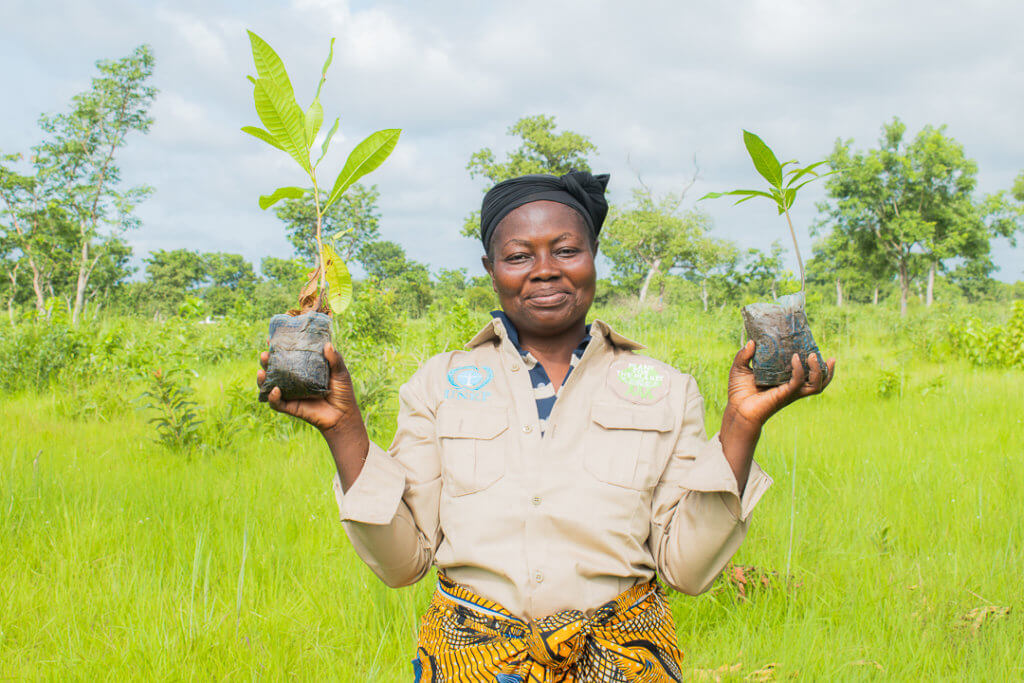
What inspired your trip to Ghana, and what was it like visiting Africa for the first time? Can you share some highlights from your trip and the people you met?
After working with Plant-for-Ghana for a while, it was important to see the project firsthand, especially for our fundraising partners. So, we packed our bags and headed to Ghana. It was my first time in Africa, and it was eye-opening.
Our journey began in Accra, Ghana’s vibrant capital before we ventured into the Northern Savannah Ecological Region. Traveling by car, we witnessed diverse landscapes from coast to heartland.
Arriving at the project site was unforgettable. We joined the dedicated staff at the tree nursery, learning about their work. That next day, we planted over 600 trees, experiencing biodiversity and restoration practices firsthand.
The project is closely linked to the communities. They play a crucial part in ecosystem protection and restoration. Nevertheless, they face many challenges daily – imagine walking for water long kilometers, not having electricity and going to sleep once the sun goes down, and struggling to produce agricultural products in your fields because of the changing climate and lack of adaptation options. We wanted to understand that more.
Traditionally, under mango trees, we talked to various interest groups from the Banpewa community – youth, the elders, and women. The talks brought us closer and helped us understand the synergy between the region’s community engagement and ecosystem restoration. People remember forests with monkeys, dense forests, and thriving biodiversity. We all hope to bring that back.
Back in Accra, we met Ms. Beata Matusikova, Economic & Trade Counsellor, at the Embassy of the Czech Republic in Accra to discuss collaboration between Plant-for-Ghana and the Czech Development Agency, highlighting international environmental cooperation.
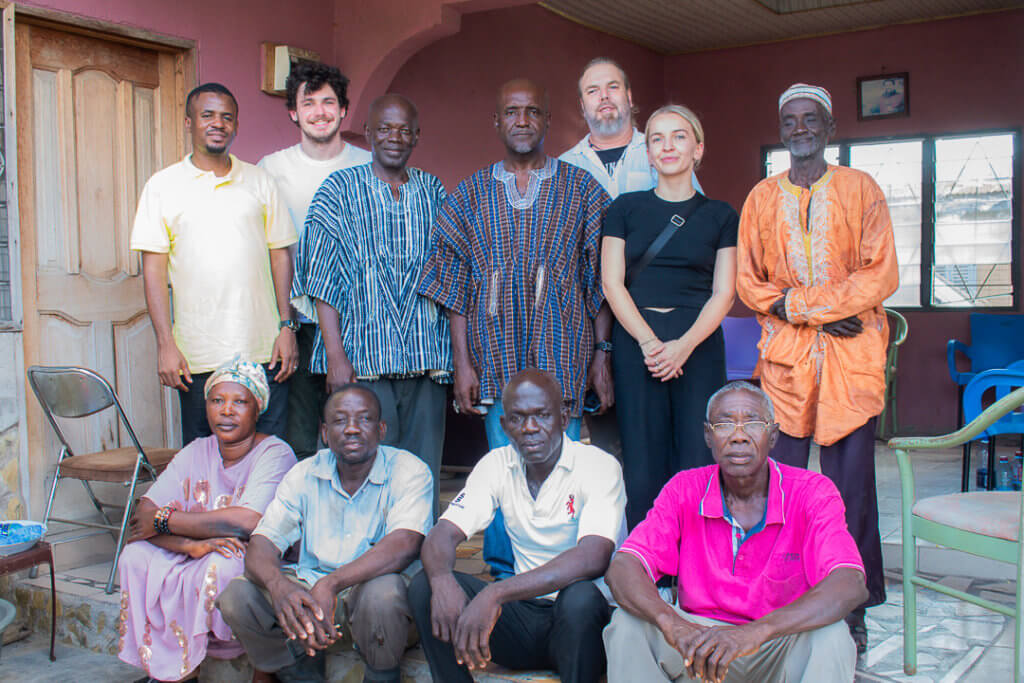
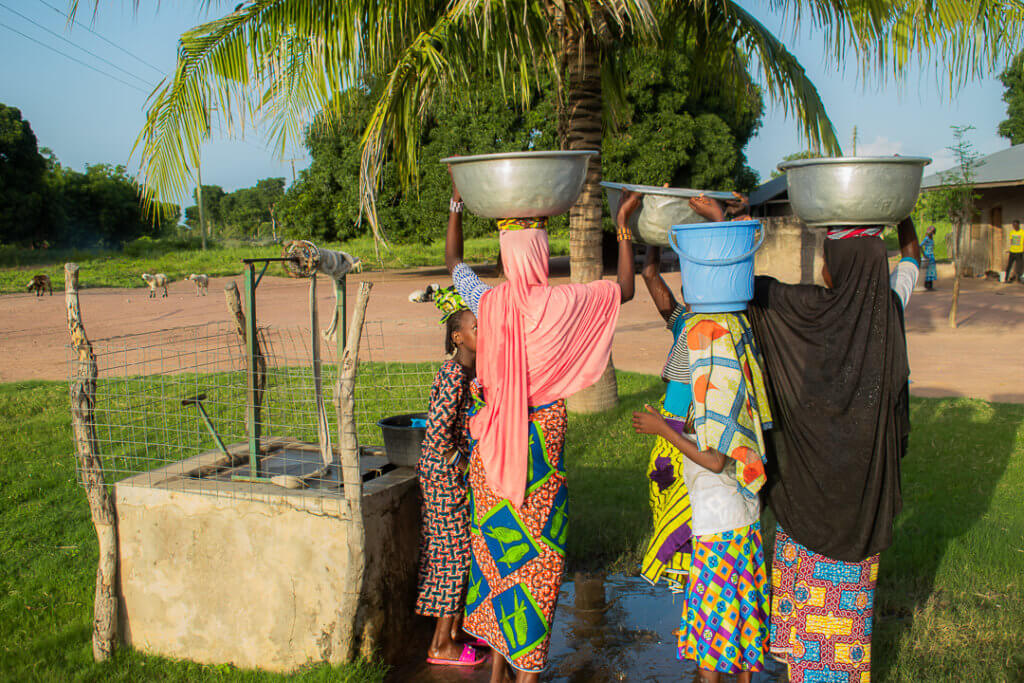
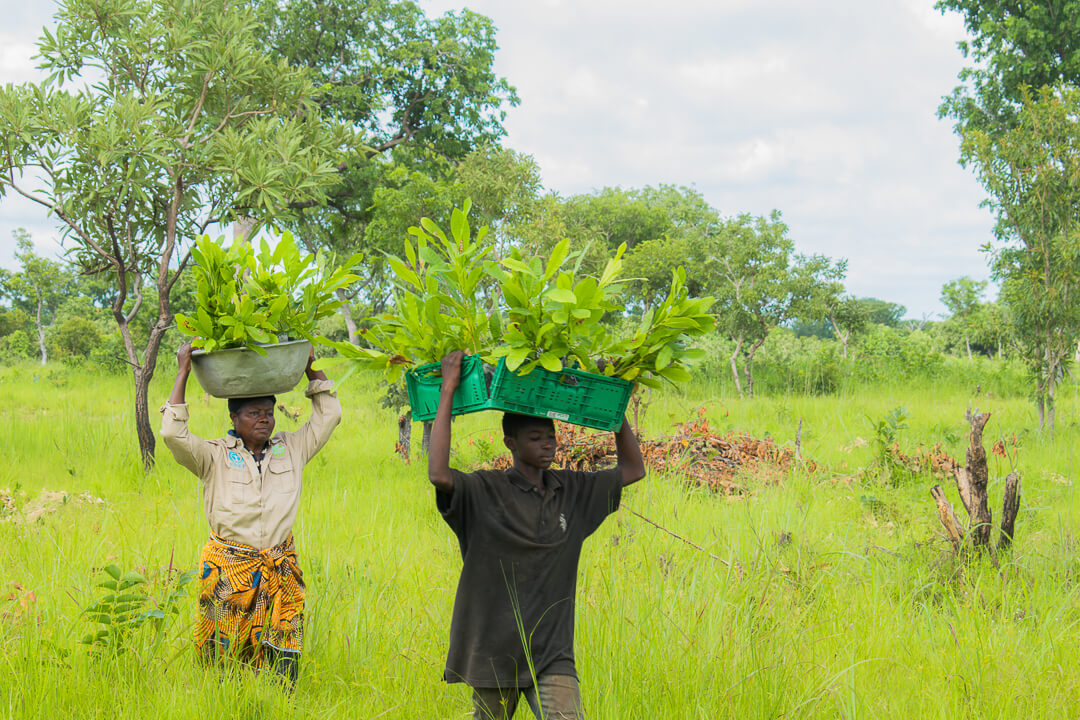
Looking back, what did you take away from your time in Ghana?
All the people involved in the projects are highly motivated, hard-working, and dedicated individuals. Plant-for-Ghana is not only a restoration project for them; it’s a mission that is a part of their daily lives. Seeing these positive minds left me feeling motivated and positive not only for the project, but also for effective climate crisis solutions.
Any funny or memorable moments from your trip?
Oh, we had plenty of laughs! Trying to balance seedlings on our heads like the locals was hilarious, and let’s say our attempts didn’t last long. Despite the incredibly spicy food, the mission impossible of getting coffee, or open holes in the chaotic cities everywhere, we enjoyed our time in Ghana very much. Thanks to Mohammed, who also kindly guided us away from any potential problems.
What are your goals for your work with Plant-for-Ghana, and how do you see the project evolving?
We aim to expand the project, create more jobs within the community, and provide training opportunities. We’re focused on raising awareness and funds in the Czech Republic to support Plant-for-Ghana’s growth. Personally, I’m excited about our plans to expand the tree nurseries in 2024 and provide sustainable income for more people, especially women.
So I would say, get involved! Whether you’re an excited individual, specialist, curious mind, or representing a company – contact me at [email protected], and we can find a way to cooperate and join forces for a more significant positive impact.
Lastly, any final thoughts or messages you’d like to share?
Many people are doing incredible work in combating the climate crisis. Nowadays, getting lost in negative stories and potentially tragic future is easy. Nevertheless, Plant-for-Ghana is just one hopeful example. Look for more of those, explore what you can do within the climate movement, and stay curious.

